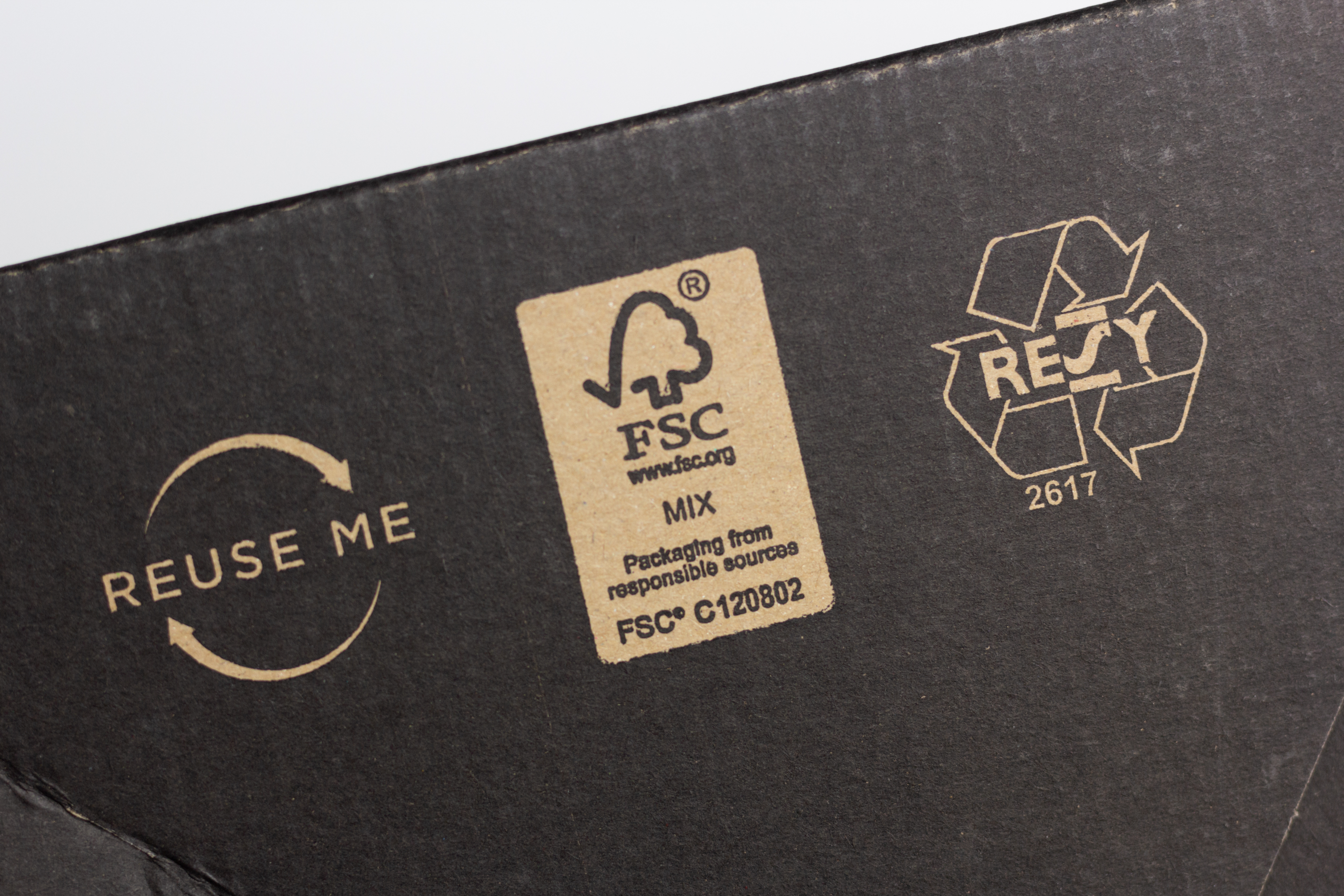
By Vilmer Ståhle
6 minute read
Vilmer Ståhle By Vilmer Ståhle
6 minute read
In the apparel industry, certifications like Scope and Transaction Certificates aren't just paperwork; they're pivotal for trust, quality, and compliance. Their role in ensuring ethical practices and meeting industry standards is vital. Yet, managing these certifications can be a challenging task, given their complexities. This article delves into the significance of these certificates, highlighting their intricacies and the need for solid systems to manage the process.
How do Scope Certificates work and what makes them stand out?
In the intricate landscape of apparel certification, Scope Certificates stand out as foundational tools that validate an entire site, facility, or production line's adherence to specific standards. Unlike certificates targeting individual transactions or products, Scope Certificates encompass a broader range of activities or processes.
For instance, a facility might obtain a Scope Certificate under the Global Organic Textile Standard (GOTS), assuring that all its textiles align with organic criteria. Similarly, the Organic Content Standard (OCS) offers certifications that verify the organic material percentage in a product.
So, what sets Scope Certificates apart?
-
Broad Coverage: They cover an entire range of products or processes. A facility certified under GOTS doesn't only cater to one type of organic textile but a variety.
-
Duration and Renewal: These certificates come with a defined validity. Regular renewal ensures continuous adherence to the set standards.
-
Rigorous Auditing: Obtaining and retaining such certificates demands thorough audits. It guarantees facilities consistently align with standards like GOTS or OCS.
-
Enhanced Traceability: Traceability is central, especially in today's emphasis on ethical sourcing. Many Scope Certificates necessitate robust systems to track raw materials, ensuring product integrity.
-
Reputation Boost: Holding a Scope Certificate can position brands as stalwarts of best practices, enhancing credibility among consumers and stakeholders.
By embracing the comprehensive protection and assurance that Scope Certificates offer, brands underline their commitment to excellence in a competitive industry.
How Transaction Certificates are used to build trust and ensure compliance
Transaction Certificates (TCs) play a pivotal role in the supply chain of the apparel industry, specifically when it comes to products claiming adherence to certain standards. Unlike Scope Certificates, which validate a site or facility's broader capabilities, TCs serve as a guarantee for specific transactions, verifying the authenticity and compliance of individual product batches.
Take the Global Organic Textile Standard (GOTS) as an example. While a Scope Certificate would validate a facility's capability to produce GOTS-compliant textiles, a Transaction Certificate confirms that a particular batch of textiles, being traded or sold, adheres to the GOTS criteria.
Distinguishing features of Transaction Certificates:
-
Single transaction focus: Each certificate is unique to a specific trade or sale, ensuring that every product batch remains compliant.
-
Detailed information: These certificates often provide in-depth details about the product, including its origin, destination, volume, and more.
-
Validity: Typically, a TC is valid for a single transaction and cannot be reused for subsequent trades, ensuring each product batch's unique compliance.
-
Trust amplifier: For buyers and stakeholders, a Transaction Certificate amplifies trust, ensuring they're receiving a product that aligns with their standards and expectations.
Embracing Transaction Certificates means embracing a system of accountability and transparency in every trade, underscoring a brand's dedication to genuine, high-quality products.
What are the key differences between Scope and Transaction Certificates?
In the realm of apparel industry certifications, Scope and Transaction Certificates are foundational yet distinct tools, each serving its unique purpose. While both aim to ensure standard adherence and elevate brand trust, understanding their differences is paramount for any apparel company striving for transparency and quality.
Coverage:
-
Scope Certificates: These validate an entire facility or production line, ensuring all its products or processes adhere to specific standards. Think of it as a blanket assurance covering a wide range of products.
Transaction Certificates: These target individual trades or sales, verifying the compliance of specific product batches. It's a pinpointed assurance for each transaction.
Purpose and Usage:
Scope Certificates: They underscore a facility's capabilities. For instance, having a GOTS Scope Certificate asserts a facility's ability to produce organic textiles.- Transaction Certificates: They assure buyers and stakeholders about the authenticity of a specific product batch. A GOTS Transaction Certificate, for instance, confirms a particular batch's compliance.
Reputation and Trust:
Scope Certificates: They underscore a facility's capabilities. For instance, having a GOTS Scope Certificate asserts a facility's ability to produce organic textiles.
Transaction Certificates: Enhance trust in individual transactions, ensuring buyers they're getting what they expect.
In essence, while Scope Certificates validate broader capabilities, Transaction Certificates focus on the compliance of individual product batches. Both are vital in their right, fortifying a brand's dedication to quality, transparency, and ethical practices.
Efficient certificate management matters
In the intricate world of apparel, certificates like Scope and Transaction Certificates are more than just pieces of paper—they signify quality, trust, and a brand’s commitment to ethically sound practices. However, the sheer variety and volume of certificates, coupled with their significant impact, make their efficient management an imperative, yet challenging endeavor.
Challenges in handling certifications
-
- Volume and variety: With each product line, transaction, or new production process, there might be different certifications required, each with its own set of standards.
- Dynamic updates: Certification standards can be updated, requiring constant monitoring and adjustment in practices.
- Overlapping standards: Some certifications may have overlapping criteria, making it confusing to ascertain which is most appropriate or whether multiple certifications are needed.
Implications of mismanagement
-
- Brand reputation: A missed certification or a lapsed renewal can damage the trust built over years in an instant.
- Legal repercussions: Non-compliance can lead to hefty fines, legal disputes, and even bans in certain markets.
- Lost opportunities: Retailers and partners might prefer or even mandate specific certifications, and lacking them can mean missed business opportunities.
Risks & Costs
-
- Financial: Mistakes, like opting for the wrong certification, renewing late, or facing fines for non-compliance, can be costly.
- Operational: Mismanagement can lead to production halts if certain certifications lapse or are found invalid.
- Supply chain risks: If one link in the supply chain fails in its certification management, it can jeopardize the entire chain, leading to delays or recalls.
Resources for successful implementation
- Financial: Mistakes, like opting for the wrong certification, renewing late, or facing fines for non-compliance, can be costly.
-
- Expertise: Understanding the nuances of each certification requires knowledgeable personnel or consulting.
- Time: Keeping track of renewals, understanding updates, and ensuring all processes remain compliant is time-consuming.
- Technological assistance: Leveraging tools like PLMs can ease the burdensome process of certificate management by centralizing information, automating workflows, and providing timely reminders.
In the end, while managing certifications is undoubtedly complex, the risks of mismanagement are far too significant to ignore. Efficient certificate management not only safeguards a brand's reputation and trust but also ensures smooth operations, compliant products, and a resilient supply chain. With the right resources and tools, brands can navigate the intricacies of certifications and solidify their stance in the market.
Streamlining Certificate Management with PLM?
Juggling multiple certificates, monitoring their validity, and keeping updated with shifting standards can overwhelm even the most seasoned professionals. In this maze of complexities, a Product Lifecycle Management (PLM) system emerges as the beacon.
A PLM streamlines and automates much of the manual processes, ensuring:
- Centralization: All certification details, from standards to renewal dates, housed in one accessible location.
- Timely Updates: Automated alerts for renewals or standard updates ensure nothing slips through the cracks.
- Enhanced Visibility: Quickly view all products under a specific certification, ensuring complete compliance.
Given the intricacies of fashion certification, having a robust PLM in place isn't just an advantage; it's a necessity. To dive deeper into how a PLM transforms the world of certification management in the fashion industry, explore our Ultimate Guide to Fashion Certification Management with PLM.




.webp)

.webp)
.webp?width=600&height=349&name=menu%20item%20-%20fashion%20(1).webp)












.webp?width=2000&name=menu%20item%20-%20collaboration%20(2).webp)
.webp?width=2000&name=menu%20item%20-%20samples%20(1).webp)
.webp?width=2000&name=menu%20item%20-%20profit%20%26%20margins%20(1).webp)
.webp?width=2000&name=menu%20item%20-%20compliance%20(1).webp)





